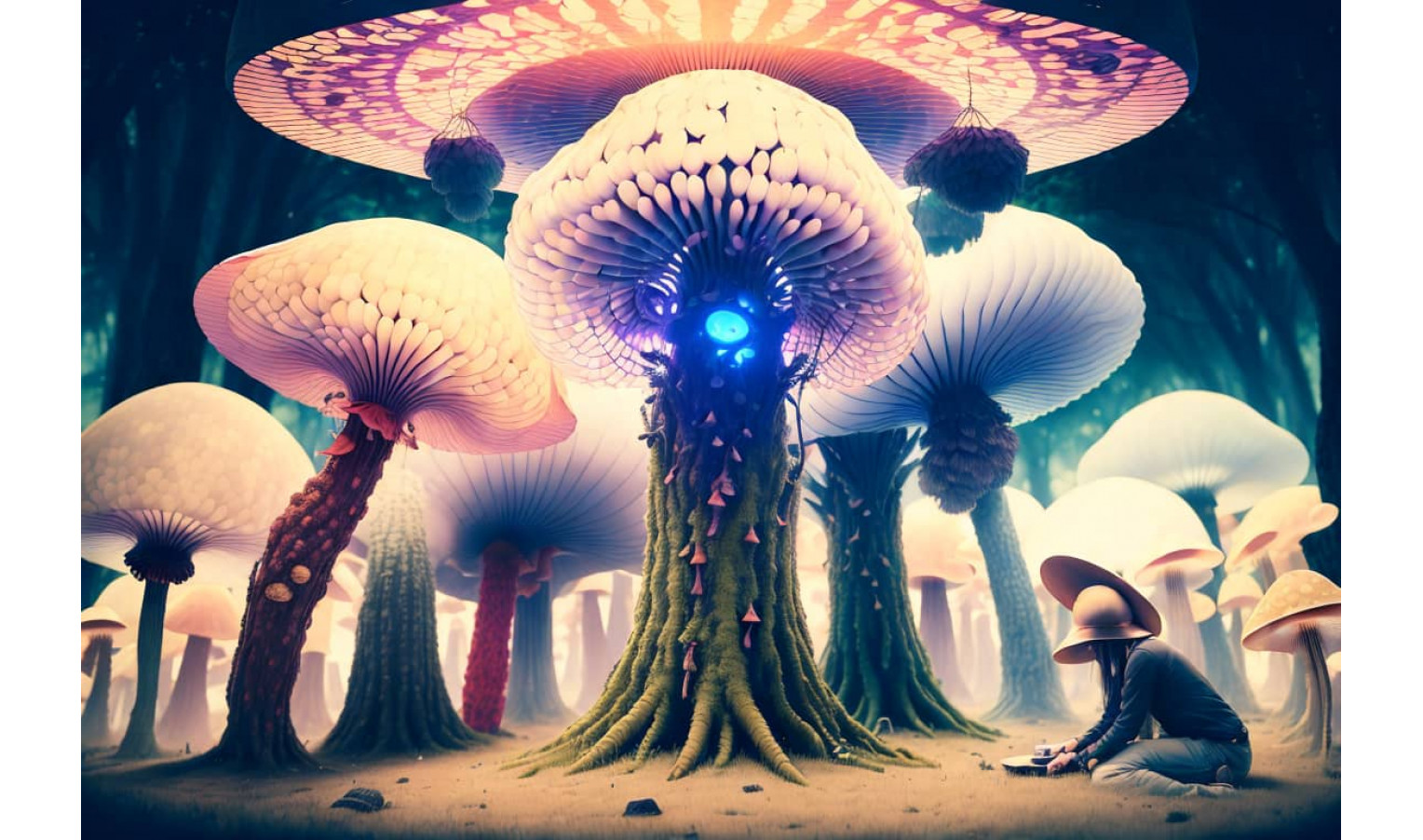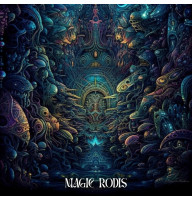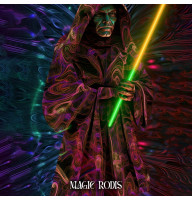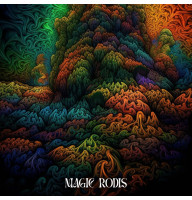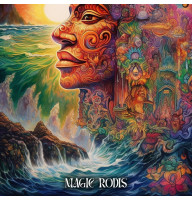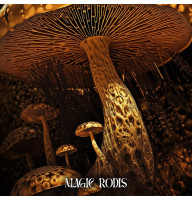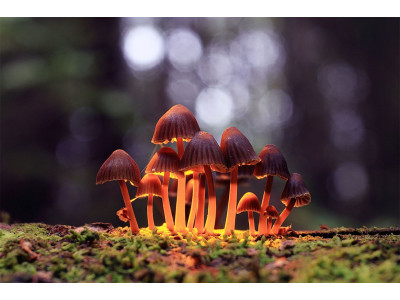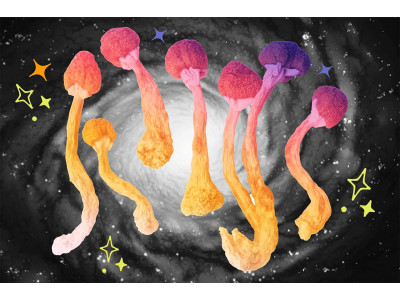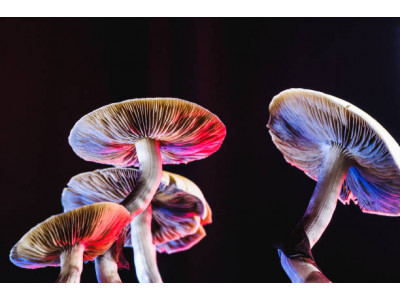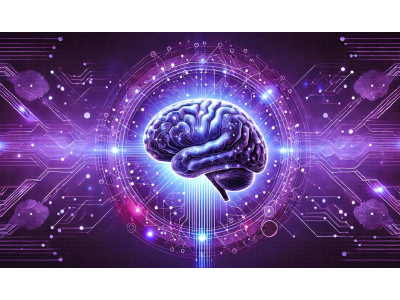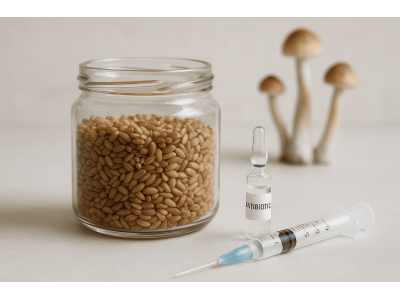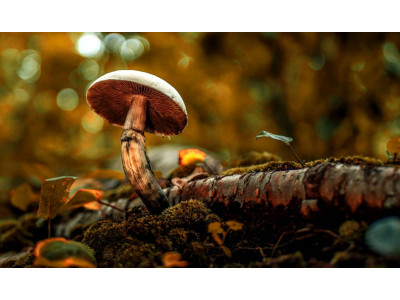Table of content
- What is psilocybin?
- History of the substance
- Psilocybin in medicine
- The effect of psilocybin on the brain
- The effect of psilocybin
- Microdosing of psilocybin
- Conclusions
Psilocybin - is a naturally occurring psychedelic substance that can be found in many types of mushrooms. Since ancient times, mankind has been using it for medicinal purposes, for shamanic rites, religious ceremonies, and magical performances. The regions where psychedelic mushrooms grow are South America, Mexico, Europe, and the United States. They are called magic or magical due to the special qualities of psilocybin. Humanity uses it as a means of rest and relaxation. It causes euphoric feelings and sensory distortions, hallucinations.
Its medical effect is also very important, as it helps people suffering from mental disorders such as depression, post-traumatic stress disorder (PTSD), and many others better than any other drug.
What is psilocybin?
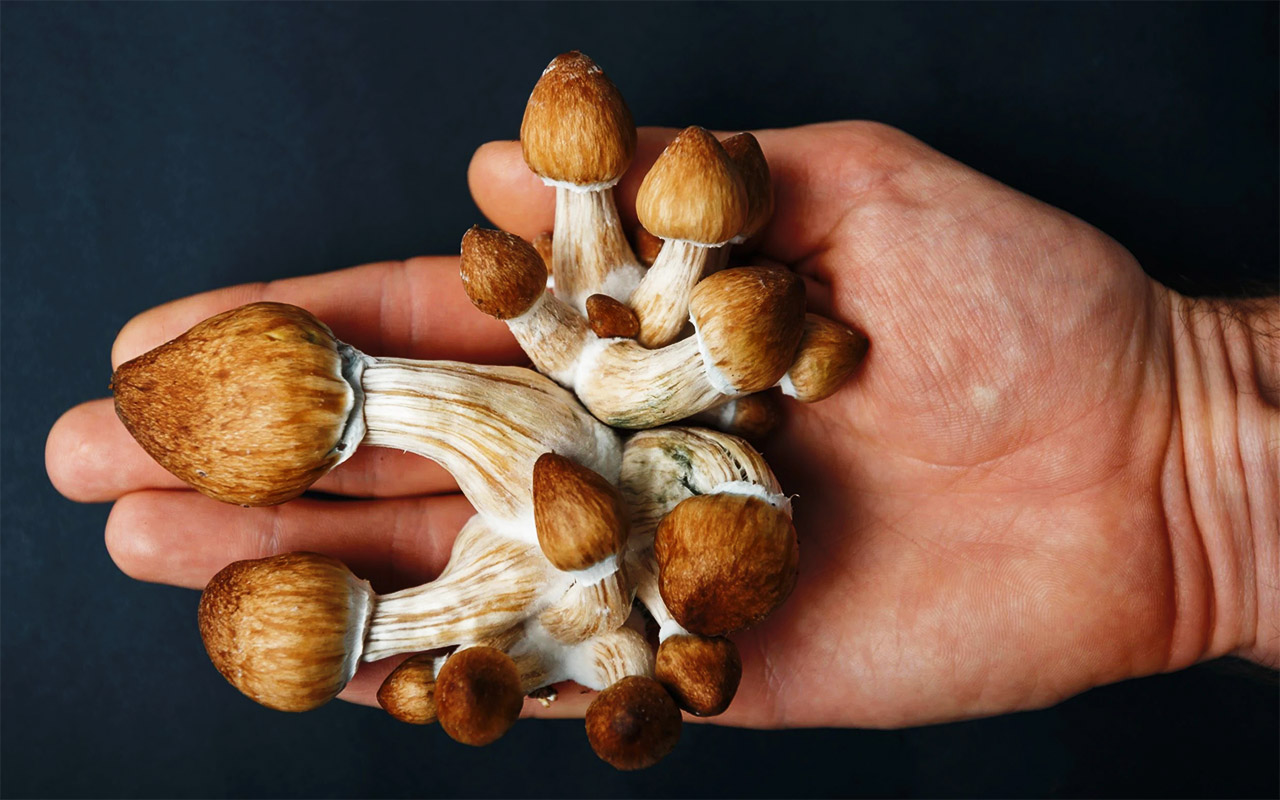
Psilocybin (4-phosphoryloxy-N,N-dimethyltryptamine) is derived from certain types of mushrooms found on almost all continents. The mushrooms, also known as shrooms or magic mushrooms, are usually consumed in dried or powdered form. Psilocybin is a member of a group of drugs called psychedelics or hallucinogens that can alter the sense of reality, causing a person to see, hear, and feel things that do not happen in real life, or to perceive reality differently.
History of the substance
Mushrooms have a long history of use. There is evidence that the indigenous people of Central America used them for healing and spiritual rituals as early as 3000 BC. Scientists began studying psilocybin several decades ago, along with related substances such as lysergic acid diethylamide (LSD), to investigate their potential for treating mental illness, particularly substance use disorders.
Psilocybin in medicine
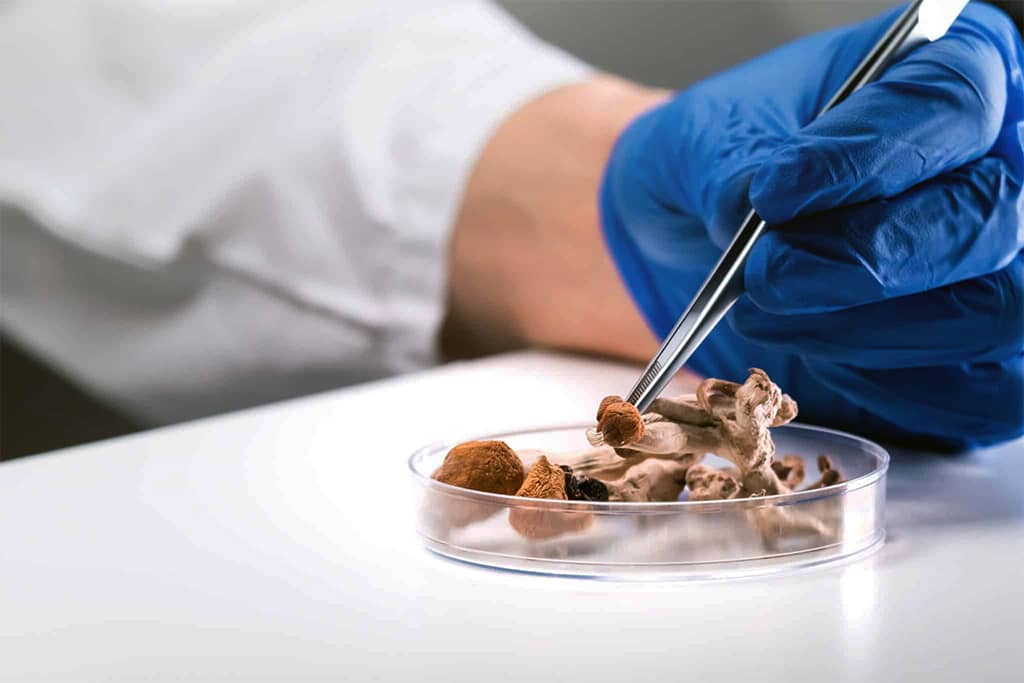
We are currently witnessing a new surge of interest in the study of psilocybin, its effects and potential in the treatment of conditions such as depression, post-traumatic stress disorder (PTSD), addiction, pain and neurodegenerative diseases. Many people are interested in how psilocybin can affect their lifestyle and thinking.
According to a survey of more than 7,000 people published in 2021, about 7% - that's about 500 people - answered “YES” to the question “Have they used psilocybin mushrooms in the past year?”. People who use them can get high, improve their well-being, or self-medicate disorders such as depression or anxiety.
Effects of psilocybin on the brain
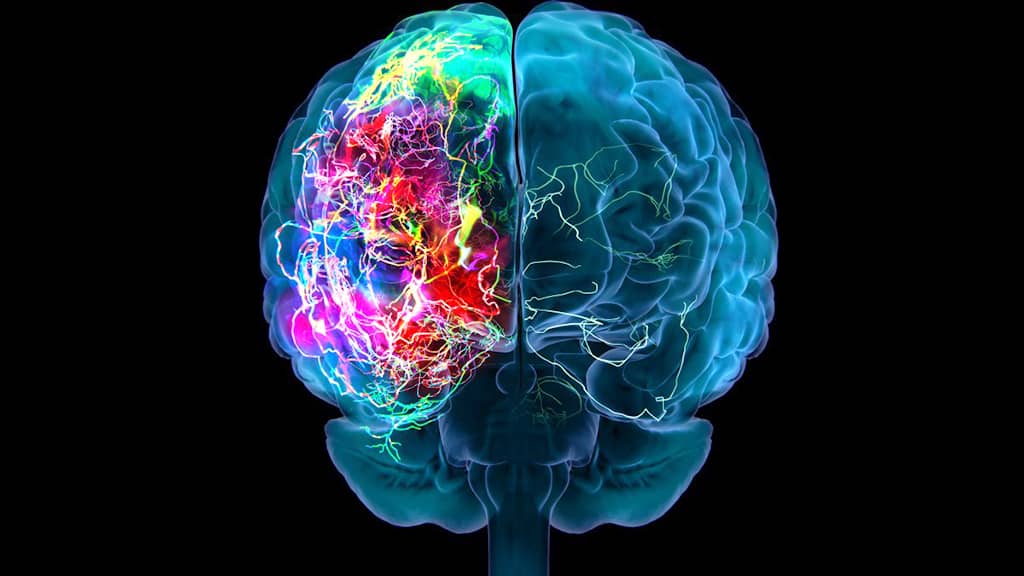
When a person takes psilocybin, their body converts it into another substance called psilocin. Psilocin attaches to and activates the receptors, or binding sites, of the brain chemical serotonin, primarily the serotonin receptor 5-hydroxytryptamine 2A (5HT2a). Researchers believe that this action is responsible for most of the subjective feelings a person experiences when eating mushrooms.
The substance affects brain function and how different parts of the brain interact with each other. These changes in brain activity contribute to a profound change in a person's consciousness. In some areas, activity and connectivity increase, in others, they decrease. Research shows that psilocybin can temporarily disrupt connectivity between areas of the brain known as the default mode network, which is most active when we are engaged in introspection. A reduced sense of self-consciousness can lead to more openness and connection to the world.
The effect of psilocybin
Psilocybin has a wide range of potential effects. A person's personality and expectations of the experience at the time of drug use - the so-called “set” - and the people and environment around them - the so-called “setting” - play a role in how they will react to the drug. Also important are the amount of drug taken and the potency (concentration and strength), as well as the person's age, unique biology, gender, personality, and history of use.
The effects can be as follows:
- Altered perception.
Magic mushrooms usually cause changes in the perception of reality. People may see colors, shapes, or scenes, hear unrealistic things, or lose their sense of time and space. - Changes in mood and perception.
A person who uses psilocybin may have a so-called mystical experience, when they fall into a dreamy, euphoric state, perhaps experience visions or relive memories. The person's sense of self may change, and they may feel that they have no personal boundaries and are one with the universe - what some researchers call “oceanic immensity.” This experience can be blissful, but it can also be frightening, causing fear or panic. The most important thing is not to give in to this fear.
Microdosing psilocybin
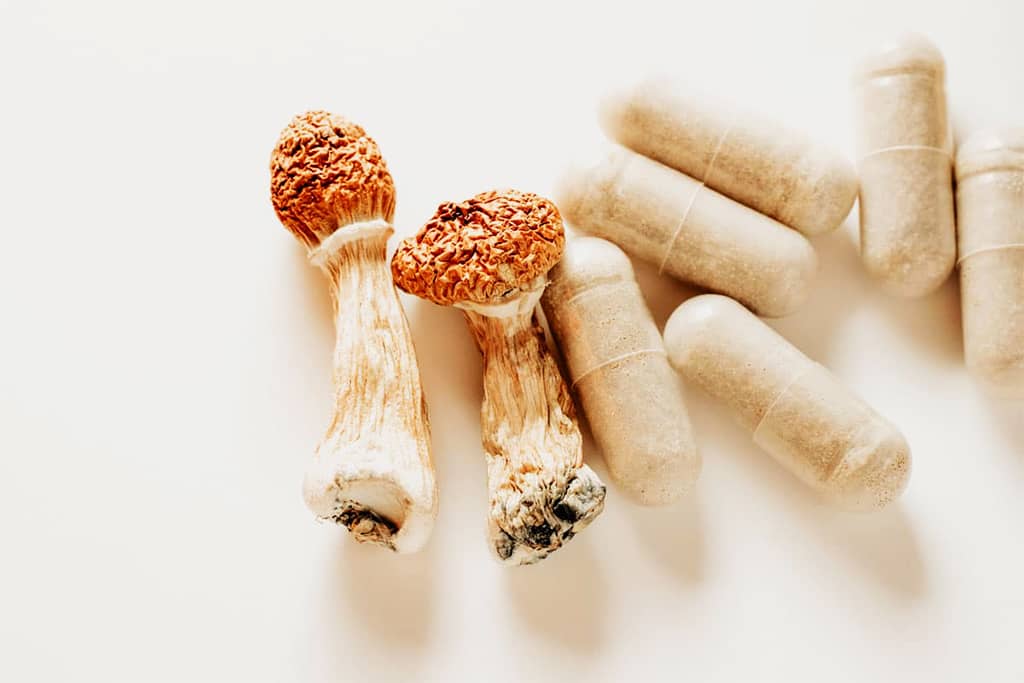
Psilocybin microdosing is the regular use of a small amount of a hallucinogenic substance, usually 5-10% of the standard dose. People who take psilocybin in microdoses can improve their mental health conditions, such as depression, anxiety, and obsessive-compulsive disorder (OCD).
Conclusions
The study of psilocybin confirms its potential as a drug for psychotherapy and consciousness-expansion. Despite its historical connection with rituals and traditions, this psychoactive substance is attracting the attention of modern science for its ability to induce deep experiences and altered states of consciousness.
Research findings indicate the enormous potential of psilocybin in the treatment of depression, anxiety disorders and addictions. Psilocybin is an interesting area of research and may have promising implications for the development of psychotherapy and the understanding of human consciousness.
Attention! The content of this article is intended exclusively for persons over 18 years of age and is provided for informational purposes only.

